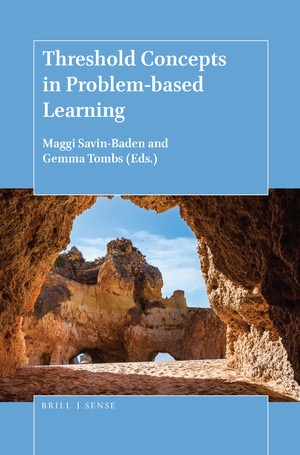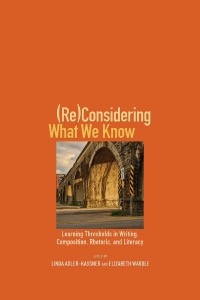threshold concepts
Select an item by clicking its checkbox
Date Reviewed: April 15, 2020
The editors of this volume address a gap in scholarship by bringing Problem-based Learning (PBL) into fruitful dialogue with the separately developed Threshold Concepts Framework (TCF). The goal of the volume is to show how TCF enhances the understanding and practice of PBL. None of the authors addresses the teaching of theology or religion; nonetheless, each chapter offers some insight that could readily lend itself to a better understanding of the process of learning in the theology or religious studies classroom. The collection begins with four strong introductory chapters addressing the basics of these two pedagogical approaches and their relationship to each other. The next three chapters lay out how these theories can be found across such different disciplines as engineering education, chemical engineering design, and professional development for university teachers. The final three chapters report on research projects that point out new TCs in additional disciplines.
PBL is an educational practice that presents students with real world problems that are not neatly defined and do not have an obvious solution. Students work in groups to decide what further knowledge they need, how to obtain it, and how to represent it. The TCF works with the points at which students cross in a significant way from familiar ways of framing knowledge to a point of disorientation and then to incorporating new knowledge. Savin-Baden and Tombs describe TCs and PBL as independently developed pedagogies but natural partners nonetheless. This is true in two ways. PBL has long described itself as deliberately constructing a path for students toward and through “troublesome” knowledge. Suitable problems for PBL are those that lead students to a point of being stymied in their existing level of knowledge as they address wicked problems that are not easily classified and solved. Often the PBL method is itself troublesome to students as they wrestle with an educational process that shifts responsibility from teacher to student and from individual to group.
Operating separately, TCs identify and work with concepts either particular to a discipline or more generally, that require a student to leave the space of prior knowledge and self-understanding and enter into a liminal state in which prior knowledge is no longer viable but new concepts or self-understandings are not yet grasped or stabilized. TCs give attention to the type and amount of scaffolding that is necessary to prepare students and help to direct them through these impasses. Although the TCF was originally developed through consideration of threshold concepts in particular disciplines, the editors go beyond those boundaries to consider transdisciplinary concepts including critical thinking.
Even though the chapters devoted to particular disciplines are not all obviously applicable to teaching theology and religion, their authors succeed in making the target ideas more understandable. The chapter most valuable for teachers of theology and religion is the contribution of Jayne Lewis, “Empathy and Problem-based Learning.”
People unfamiliar with these two areas will find enough guidance to read the discussion fruitfully; that being said, this collection is not an entry-level introduction but an opportunity for deeper development for those already familiar with one or both of these approaches. There are more proofreading issues in this book than one would expect. Skipped words and puzzling phrases slow readers down while they grapple with making sense of the text.
Date Reviewed: June 22, 2021
Part 1 raises questions about the ...
Part 1 raises questions about the ideologies of consensus that are associated with naming threshold concepts of a discipline. Contributions challenge the idea of consensus and seek to expand both the threshold concepts framework and the concepts themselves. Part 2 focuses on threshold concepts in action and practice, demonstrating the innovative ways threshold concepts and a threshold concepts framework have been used in writing courses and programs. Part 3 shows how a threshold concepts framework can help us engage in conversations beyond writing studies.
(Re)Considering What We Know raises new questions and offers new ideas that can help to advance the discussion and use of threshold concepts in the field of writing studies. It will be of great interest to scholars and graduate students in writing studies, especially those who have previously engaged with Naming What We Know. (From the Publisher)

